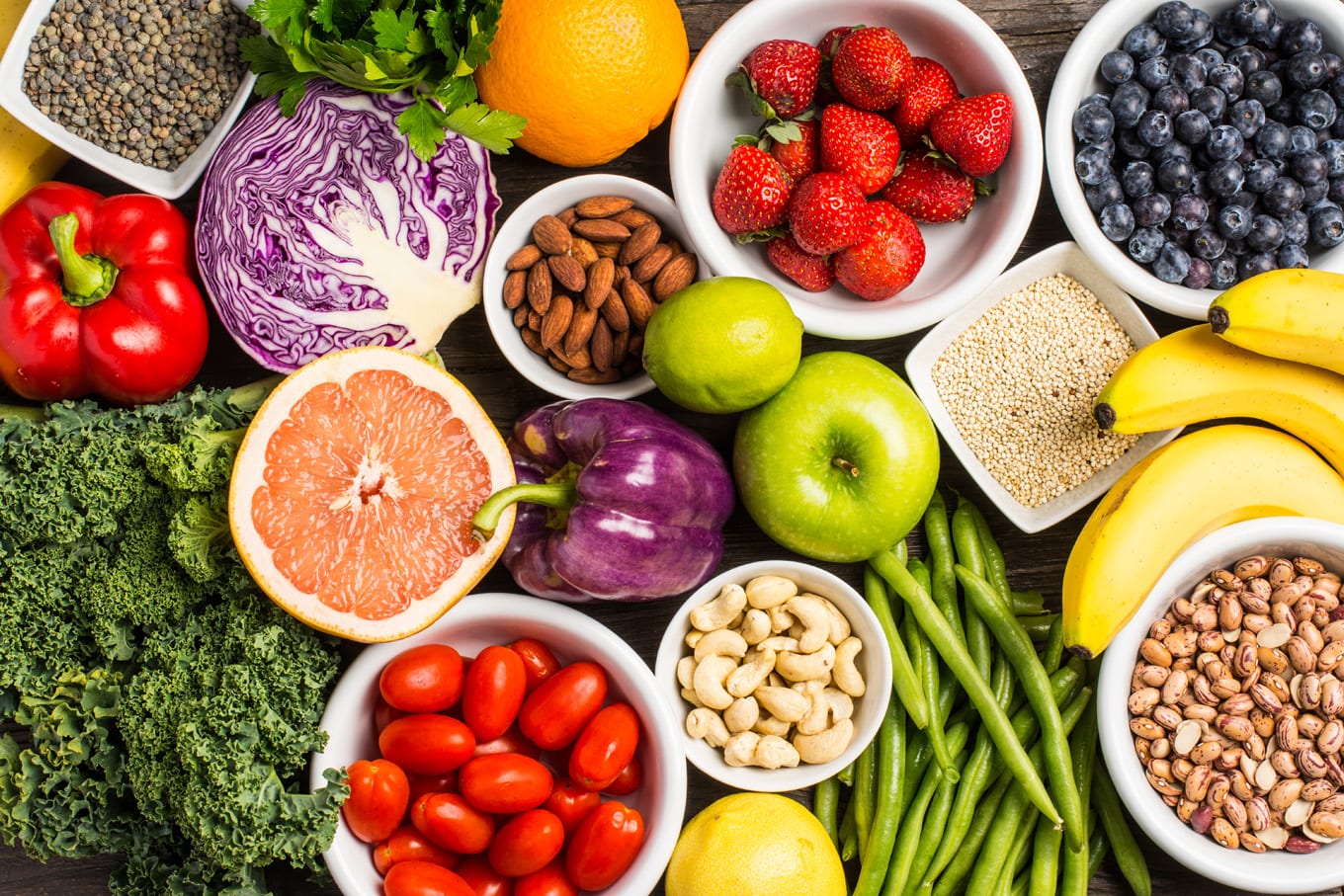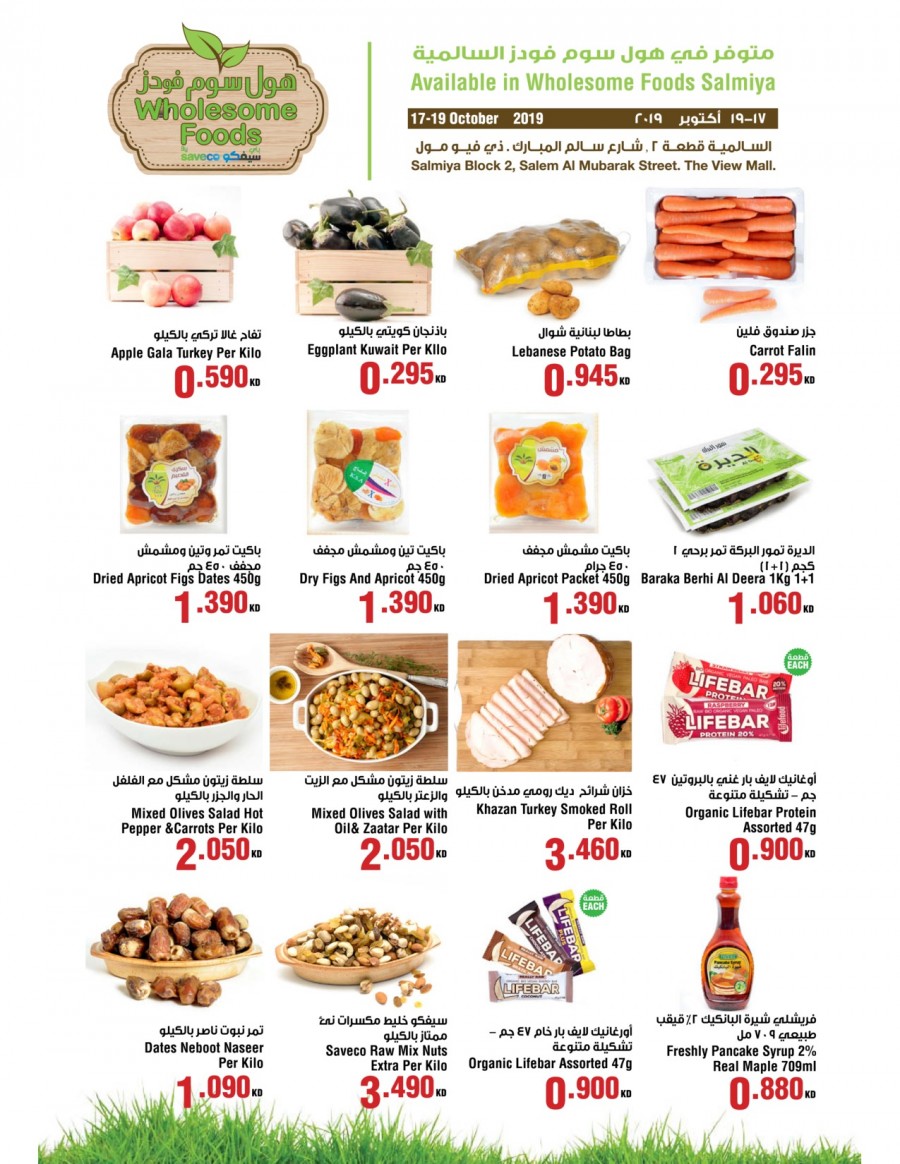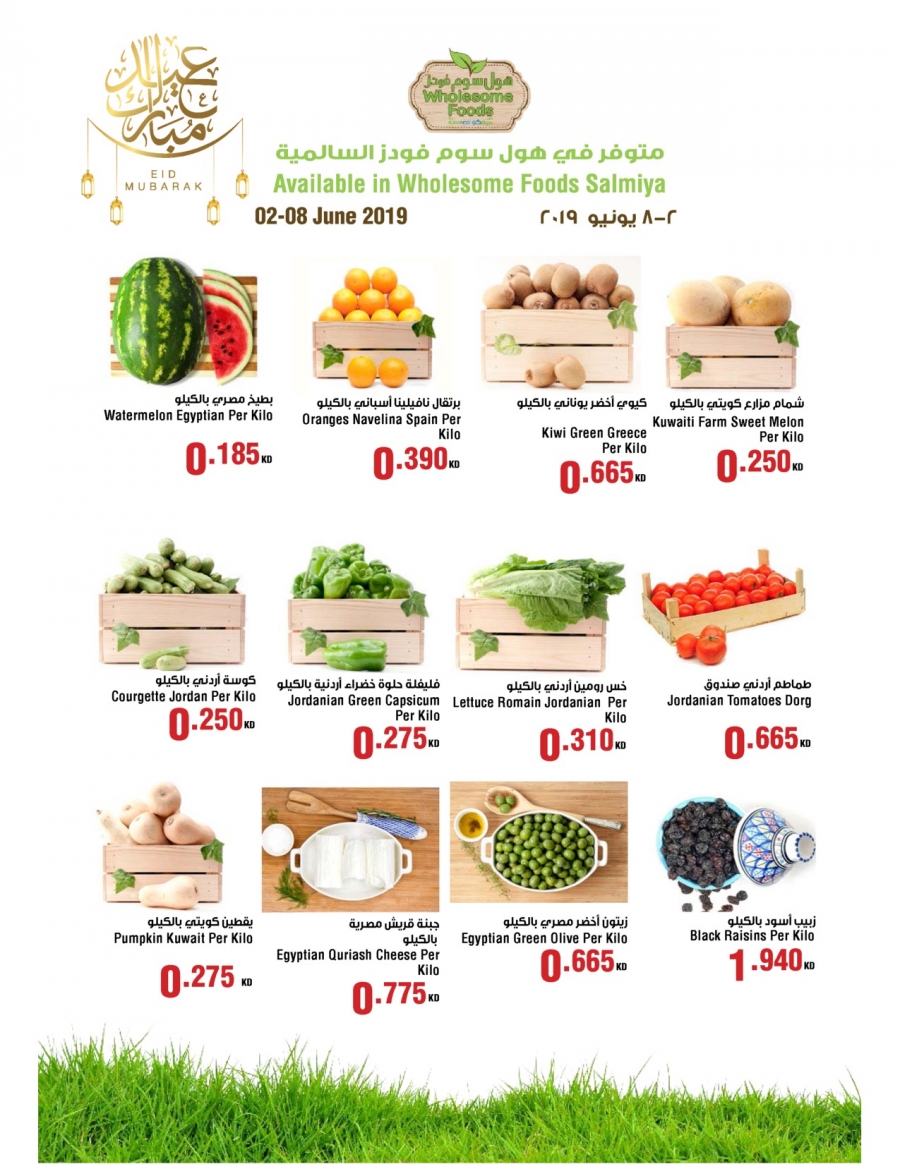What exactly are wholesome foods, and why are they so important for our health?
Wholesome foods are nutrient-rich foods that are minimally processed and free from harmful additives. They are the foundation of a healthy diet and provide the body with the essential nutrients it needs to function properly.
Some examples of wholesome foods include:
- Fruits and vegetables
- Whole grains
- Lean protein
- Healthy fats
- Dairy products
Wholesome foods are important for a number of reasons. They provide the body with the essential nutrients it needs to function properly. They also help to reduce the risk of chronic diseases such as heart disease, stroke, type 2 diabetes, and some types of cancer.
In addition to their health benefits, wholesome foods are also typically more affordable and environmentally friendly than processed foods. They are a great way to save money and reduce your impact on the environment.
Making the switch to a wholesome diet is one of the best things you can do for your health. By eating more wholesome foods, you can improve your overall health and well-being.
wholesome foods
Wholesome foods are nutrient-rich foods that are minimally processed and free from harmful additives. They are the foundation of a healthy diet and provide the body with the essential nutrients it needs to function properly.
- Nutritious
- Unprocessed
- Additive-free
- Health-promoting
- Affordable
- Environmentally friendly
- Essential
These key aspects of wholesome foods highlight their importance for our health and well-being. By eating more wholesome foods, we can improve our overall health and reduce our risk of chronic diseases. Wholesome foods are also typically more affordable and environmentally friendly than processed foods, making them a great choice for both our health and our planet.
1. Nutritious
Nutritious foods are foods that provide the body with the nutrients it needs to function properly. These nutrients include carbohydrates, protein, fat, vitamins, and minerals. Wholesome foods are nutritious foods that are also minimally processed and free from harmful additives.
The connection between nutritious and wholesome foods is clear: wholesome foods are nutritious foods. However, not all nutritious foods are wholesome. For example, a candy bar may be nutritious because it provides carbohydrates and sugar, but it is not a wholesome food because it is highly processed and contains harmful additives.
Eating a diet that is rich in wholesome foods is essential for good health. Wholesome foods provide the body with the nutrients it needs to function properly and help to reduce the risk of chronic diseases such as heart disease, stroke, type 2 diabetes, and some types of cancer.
Here are some tips for eating a more nutritious and wholesome diet:
- Eat plenty of fruits and vegetables.
- Choose whole grains over refined grains.
- Opt for lean protein sources, such as fish, chicken, and beans.
- Limit your intake of processed foods, sugary drinks, and unhealthy fats.
By following these tips, you can improve your overall health and well-being.
2. Unprocessed
Unprocessed foods are foods that have not been altered from their natural state. They are free from added ingredients, such as preservatives, artificial flavors, and colors. Wholesome foods are unprocessed foods that are also nutrient-rich and minimally processed.
- Fresh fruits and vegetables
Fresh fruits and vegetables are unprocessed foods that are packed with nutrients. They are a great source of vitamins, minerals, and antioxidants. Eating plenty of fresh fruits and vegetables is essential for good health.
- Whole grains
Whole grains are unprocessed grains that contain the entire grain kernel, including the bran, germ, and endosperm. Whole grains are a good source of fiber, vitamins, and minerals. Eating whole grains instead of refined grains can help to improve your health.
- Lean protein
Lean protein is unprocessed protein that is low in fat and cholesterol. Lean protein sources include fish, chicken, beans, and tofu. Eating lean protein can help to build and maintain muscle mass.
- Healthy fats
Healthy fats are unprocessed fats that are good for your health. Healthy fats include olive oil, avocados, and nuts. Eating healthy fats can help to improve your heart health and reduce your risk of chronic diseases.
Eating a diet that is rich in unprocessed foods is essential for good health. Unprocessed foods are nutrient-rich and free from harmful additives. By eating more unprocessed foods, you can improve your overall health and well-being.
3. Additive-free
In the context of wholesome foods, "additive-free" refers to the absence of artificial ingredients, preservatives, and other chemicals that are commonly added to processed foods. These additives are often used to enhance flavor, extend shelf life, or improve appearance, but they can also have negative health effects.
- Artificial flavors and colors can be made from petroleum-based chemicals, and some have been linked to cancer and other health problems.
- Preservatives, such as sodium benzoate and potassium sorbate, can kill beneficial bacteria in the gut and may be linked to allergies and other immune system problems.
- Antioxidants, such as BHA and BHT, are added to prevent fats and oils from going rancid, but they have been linked to cancer and other health problems.
Wholesome foods are free from these harmful additives. They are made with real, whole ingredients that are minimally processed. This makes them a healthier choice for both your body and your taste buds.
4. Health-promoting
Wholesome foods and health promotion are inextricably linked. A diet rich in nutrient-dense, minimally processed foods provides a foundation for optimal health and well-being, reducing the risk of chronic diseases and supporting overall physical and mental vitality.
- Disease Prevention
Fruits, vegetables, and whole grains are loaded with antioxidants, vitamins, and minerals that combat oxidative stress and inflammation, reducing the risk of chronic diseases like heart disease, stroke, type 2 diabetes, and some types of cancer.
- Weight Management
Wholesome foods are typically more satiating than processed foods, helping individuals feel fuller for longer periods and promoting a healthy weight.
- Improved Digestion
Whole grains, fruits, and vegetables are rich in fiber, which supports a healthy digestive system, prevents constipation, and promotes regularity.
- Boosted Immunity
Wholesome foods provide essential nutrients like vitamin C, zinc, and selenium, which strengthen the immune system and protect against infections.
Incorporating wholesome foods into your diet is a proactive step towards better health. By choosing nutrient-rich, minimally processed options, you can nourish your body, prevent disease, and promote overall well-being.
5. Affordable
The affordability of wholesome foods is a crucial aspect that makes them accessible to individuals and families across socioeconomic backgrounds. Wholesome foods are often perceived as expensive, but this is not always the case. In fact, many wholesome foods are budget-friendly and can be incorporated into a healthy diet without breaking the bank.
One of the key reasons why wholesome foods can be affordable is that they are often minimally processed or unprocessed. This means that they do not require extensive manufacturing or packaging, which can add to their cost. For example, buying fresh fruits and vegetables in season can be more affordable than purchasing processed snacks or frozen meals.
Another reason why wholesome foods can be affordable is that they are often available at local farmers' markets or community-supported agriculture (CSA) programs. These programs connect consumers directly with farmers, eliminating the middleman and reducing the cost of food. Additionally, many grocery stores now offer generic or store-brand options for wholesome foods, which are typically more affordable than name-brand products.
The affordability of wholesome foods is essential for promoting public health. When healthy foods are accessible to everyone, regardless of income, individuals and families can make healthier choices and improve their overall well-being. By supporting affordable access to wholesome foods, we can create a more equitable and just food system that nourishes all members of society.
6. Environmentally friendly
The connection between "environmentally friendly" and "wholesome foods" is undeniable. Wholesome foods are minimally processed, unrefined, and free from harmful additives, making them not only good for our bodies but also for the planet.
- Reduced packaging waste
Wholesome foods are often sold unpackaged or in minimal packaging, reducing the amount of waste generated. For example, buying fruits and vegetables loose instead of pre-packaged options can significantly reduce plastic waste.
- Lower carbon footprint
The production and transportation of processed foods require significant energy and resources, contributing to greenhouse gas emissions. Wholesome foods, on the other hand, often have a lower carbon footprint due to their minimal processing and local sourcing.
- Support for sustainable agriculture
Wholesome foods are often produced using sustainable farming practices that protect the environment. For example, organic farming methods promote soil health, reduce pesticide use, and conserve water.
- Reduced water consumption
The production of processed foods often requires large amounts of water. Wholesome foods, such as fruits and vegetables, have a lower water footprint, conserving this precious resource.
By choosing wholesome foods, we not only nourish our bodies but also make a positive impact on the environment. Wholesome foods are a sustainable choice that supports a healthier planet for future generations.
7. Essential
In the context of nutrition, "essential" refers to nutrients that the body cannot produce on its own and must obtain from food. Wholesome foods are nutrient-rich foods that are minimally processed and free from harmful additives, making them an excellent source of essential nutrients.
There are many different types of essential nutrients, including carbohydrates, proteins, fats, vitamins, and minerals. Each type of nutrient plays a vital role in maintaining good health and well-being. For example, carbohydrates provide energy, proteins build and repair tissues, and fats support hormone production and cell function.
Wholesome foods are a good source of all the essential nutrients that the body needs. For example, fruits and vegetables are good sources of vitamins and minerals, whole grains are a good source of carbohydrates and fiber, and lean protein sources are a good source of protein. By eating a diet that is rich in wholesome foods, you can ensure that your body is getting all the essential nutrients it needs to function properly.
Eating a diet that is rich in wholesome foods is essential for good health. Wholesome foods provide the body with the essential nutrients it needs to function properly and help to reduce the risk of chronic diseases such as heart disease, stroke, type 2 diabetes, and some types of cancer.
FAQs on Wholesome Foods
This section addresses frequently asked questions about wholesome foods, providing informative answers to common concerns and misconceptions.
Question 1: What exactly are wholesome foods?
Answer: Wholesome foods are nutrient-rich foods that are minimally processed and free from harmful additives. They are the foundation of a healthy diet and provide the body with the essential nutrients it needs to function properly.
Question 2: Why are wholesome foods important for our health?
Answer: Wholesome foods are important for our health because they provide the body with the essential nutrients it needs to function properly. They also help to reduce the risk of chronic diseases such as heart disease, stroke, type 2 diabetes, and some types of cancer.
Question 3: Are wholesome foods expensive?
Answer: Wholesome foods can be affordable, especially when purchased in season and from local sources. Many budget-friendly options are available, such as fruits, vegetables, and whole grains.
Question 4: Are wholesome foods convenient?
Answer: Wholesome foods can be convenient when planned and prepared ahead of time. Many wholesome foods, such as fruits and vegetables, can be eaten on the go or incorporated into easy-to-make meals.
Question 5: How can I incorporate more wholesome foods into my diet?
Answer: Start by making small changes, such as adding a serving of fruit to breakfast or choosing whole-wheat bread over white bread. Gradually increase the amount of wholesome foods in your diet until they become the majority of what you eat.
Summary: Wholesome foods are essential for good health and well-being. They are nutrient-rich, affordable, convenient, and can be easily incorporated into a healthy diet. By choosing wholesome foods over processed foods, you can improve your overall health and reduce your risk of chronic diseases.
Transition: The following section will delve deeper into the benefits of wholesome foods and provide tips for making the switch to a healthier diet.
Conclusion
In conclusion, wholesome foods are essential for a healthy and balanced diet. They are nutrient-rich, minimally processed, and free from harmful additives. Eating a diet rich in wholesome foods can help to reduce the risk of chronic diseases such as heart disease, stroke, type 2 diabetes, and some types of cancer.
Making the switch to a wholesome diet is one of the best things you can do for your health. By choosing wholesome foods over processed foods, you can improve your overall health and well-being. Wholesome foods are affordable, convenient, and easy to incorporate into your diet. So what are you waiting for? Start making the switch to a wholesome diet today!



Detail Author:
- Name : Ernest Hermiston
- Username : lmckenzie
- Email : jalen.reynolds@mann.net
- Birthdate : 1978-06-25
- Address : 800 Aaliyah Manor South Franco, GA 76789-1463
- Phone : 1-708-661-1974
- Company : Will-Huel
- Job : Instrument Sales Representative
- Bio : Pariatur consequatur perspiciatis autem ut similique consectetur voluptatem. Fugit ut rem quia et iste. Pariatur possimus exercitationem libero repellendus. Distinctio sint iure ab impedit ipsa.
Socials
tiktok:
- url : https://tiktok.com/@ansel_leannon
- username : ansel_leannon
- bio : Exercitationem perspiciatis libero sed velit corporis doloremque.
- followers : 6605
- following : 2298
twitter:
- url : https://twitter.com/ansel_leannon
- username : ansel_leannon
- bio : Accusantium vitae harum sint nisi. Delectus est doloribus temporibus vero. Enim amet qui non enim aut.
- followers : 3410
- following : 2461